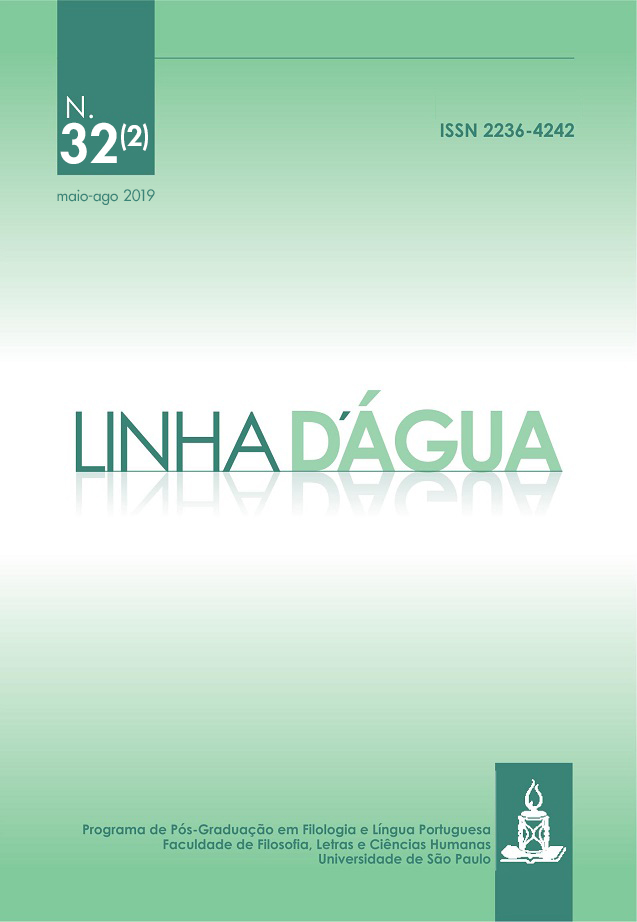Lusophone Consciousness in “Uma Política Do Idioma”, by Celso Cunha
A Historiographic Analysis
DOI:
https://doi.org/10.11606/issn.2236-4242.v32i2p169-187Keywords:
Historiography of the Portuguese Language, Language Policy, ; Celso CunhaAbstract
The history of the linguistics policies concerning a language and its teaching can be observed by the laws that used to govern them, by the disseminated didactic materials at the time and that directed the teaching in a certain moment, as well as by conferences, speeches and documents which presented and/or claimed necessary actions to constitute a language policy. In this sense, this research aims at analyzing the language policy proposal presented by Celso Cunha in conference, in the Ministry of Education and Culture, in 1963. The conference was later reproduced in the book Uma política do idioma (1964) and, according to the author, with additional notes as well as linguistic and philological foundations. It is a relevant work to understand the proposal of Cunha for National Education and, therefore, an important document for the understanding of the political-linguistic-educational context in which the discourse is uttered, as well as what are the conceptions of language and language policy that are immanent to them. In order to establish those relationships, it is necessary to look for fundamentals in the concepts of Koerner (1996). Still, as it is an act of communication in a political scene, we look, from the political discourse point of view (CHARAUDEAU, 2006), to observe the strategies of influence for the composition of Celso Cunha’s political-linguistic discourse.
Downloads
Downloads
Published
Issue
Section
License
The Editorial Board authorizes free access to and distribution of published contentes, provided that the source is cited, that is, granding credit to the authors and Linha D'Água and preserving the full text. The author is allowed to place the final version (postprint / editor’s PDF) in an institutional/thematic repositor or personal page (site, blog), immediately after publication, provided that it is available for open access and comes without any embargo period. Full reference should be made to the first publication in Linha D'Água. Access to the paper should at least be aligned with the access the journal offers.
As a legal entity, the University of São Paulo at Ribeirão Preto School of Philosophy, Sciences and Languages owns and holds the copyright deriving from the publication. To use the papers, Paidéia adopts the Creative Commons Licence, CC BY-NC non-commercial attribution. This licence permits access, download, print, share, reuse and distribution of papers, provided that this is for non-commercial use and that the source is cited, giving due authorship credit to Linha D'Água. In these cases, neither authors nor editors need any permission.
Partial reproduction of other publications
Citations of more than 500 words, reproductions of one or more figures, tables or other illustrions should be accompanied by written permission from the copyright owner of the original work with a view to reproduction in Linha D'Água. This permission has to be addressed to the author of the submitted manuscript. Secondarily obtained rights will not be transferred under any circumstance.










